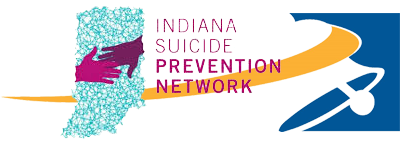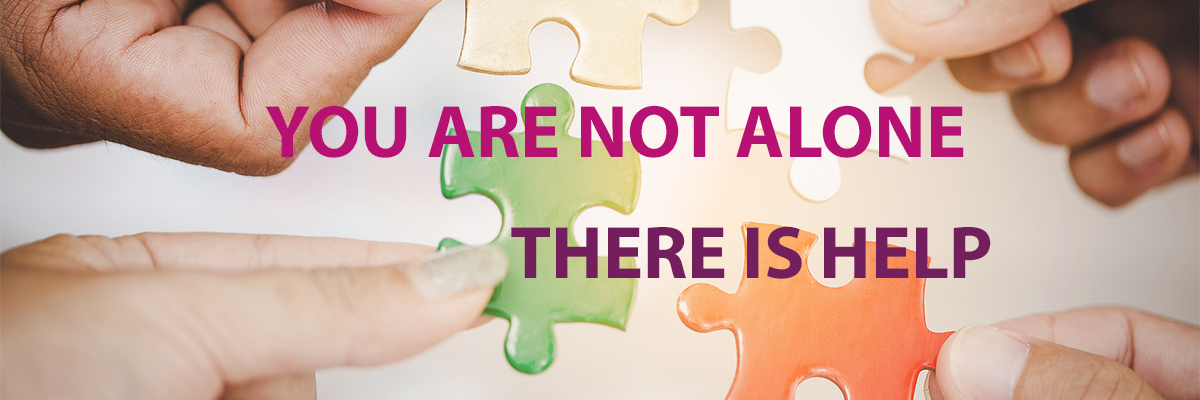Resources
Find Mental and Behavioral Health Providers
Websites
Useful Mental Health & Suicide Prevention Mobile Apps
Mental Health or Suicide Prevention
Logo
App Name in App Store
Description / Features
Suicide Prevention
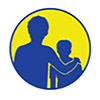
Got Your Back
Got Your Back is a digital platform for suicide awareness, prevention and education. There are tools custom built for the user to help cope with anxiety and depression including messaging tools for people in your squad making them aware that you are NOT OKAY’; one-touch access to crisis centers and hotlines; and mindfulness and calming exercises to help guide the user through moments of anxiety. It also includes a suicide safety plan feature.
Suicide Prevention

Virtual Hope Box
Virtual Hope Box helps users access immediate reminders of hope in moments of stress. Users can upload personally meaningful photos, videos, songs, and quotes. They can also choose puzzles, relaxation exercises and guided meditations, and “coping tools” (self-created cards, activity planning alarms, and a phone contact list) in the app to consolidate many resources in one app. It also includes a suicide safety plan feature.
Suicide Prevention
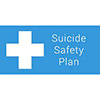
Suicide Safety Plan
Suicide Safety Plan helps users cope and stay safe when they’re experiencing suicidal thoughts. The app allows users to program useful information, including personal warning signs, coping strategies, contacts, and more. It also allows users to easily contact help and provides them with educational resources to help them make the most of their safety plan.
Suicide Prevention
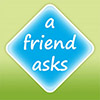
A Friend Asks
A free app for youth that helps provide the information, tools, and resources to help a friend (or yourself) who may be struggling with thoughts of suicide. It includes suicide warning signs, do’s and don’ts, and a direct link to the 988 Crisis & Suicide Lifeline.
Non-Suicidal Self Injury
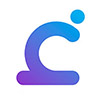
CalmHarm
Designed for youth who self harm, this app provides activities/techniques to Comfort, Distract, Express Yourself, and Release. It has breathing exercise to help you be mindful and stay in the moment, regulate difficult emotions, and reduce tension which can be helpful for those thinking of suicide too.
Mental Health
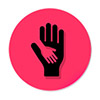
What’s Up
What’s Up is an free app that uses Cognitive Behavioral Therapy (CBT) and Acceptance Commitment Therapy (ACT) methods to help you cope with Depression, Anxiety, Stress, and more. Use the positive and negative habit tracker to maintain your good habits, and break those that are counterproductive. We particularly love the “Get Grounded” page, which contains over 100 different questions to pinpoint what you’re feeling, and the “Thinking Patterns” page, which teaches you how to stop negative internal monologues.
Mental Health
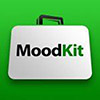
Mood Kit (only on IOS)
MoodKit uses the foundation of Cognitive Behavioral Therapy (CBT) and provides users with over 200 different mood improvement activities. Developed by two clinical psychologists, MoodKit helps you learn how to change how you think, and develop self-awareness and healthy attitudes. The journal feature is a great way to practice self-care by reflecting on the day, noting any distressing thoughts, and documenting how you overcame them.
Mental Health
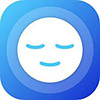
Mind Shift
Mind Shift is one of the best mental health apps designed specifically for teens and young adults with anxiety. Rather than trying to avoid anxious feelings, Mind Shift stresses the importance of changing how you think about anxiety. Think of this app as the cheerleader in your pocket, encouraging you to take charge of your life, ride out intense emotions, and face challenging situations.
Mental Health
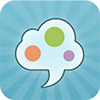
Self-Help for the Mind (SAM)
SAM might be perfect for you if you’re interested in self-help, but meditation isn’t your thing. Users are prompted to build their own 24-hour anxiety toolkit that allows you to track anxious thoughts and behavior over time, and learn 25 different self-help techniques. You can also use SAM’s “Social Cloud” feature to confidentially connect with other users in an online community for additional support.
Mental Health

Wisdo
Wisdo provides a peer support network for users to connect with others who have shared experiences. Users can select from three main topic areas; ‘Self Growth’, ‘Mental Health’, and ‘Identity’, and a variety of subtopics. Once a user selects their subtopic, they can then choose if they have “been there” and can support others, or are “there now” and need support. Users can connect and build a support network with each other and also message each other privately. There are also “live” weekly coaching sessions from certified individuals.
Mental Health
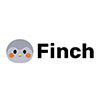
Finch
Finch is a unique self-care app that encourages the user to fill out reflective questionnaires, set goals, and develop positive habits. By combining healthful practices with an adorable virtual pet, the Finch app also supports self-care for humans. It offers a list of self care activities you can such as meditations, breathing exercises, journal reflections, soundscapes, daily check-ins, and motivational quotes.
Mental Health
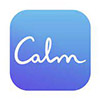
Calm
One of the first mental health apps to be developing for guided meditation and sleep. Calm teaches a person about the foundations of mindfulness meditation and provides access to a library of meditation sessions and programs that target specific themes, such as dating, panic, anxiety, and deep sleep.
The app also provides exercises, breathing techniques, music, and bedtime stories for people who are tense, feel anxious, or want to improve quality of their sleep.
Mental Health

Headspace
This popular app helps you learn how to breathe, live, and meditate – mindfully. This app is specifically designed to help you improve focus, induce calm, manage stress, and improve sleep. It offers hundreds of guided meditations, mini-meditations, sleep sounds, SOS meditations for emergencies, meditations for kids, and animations to help you better understand meditation
Mental Health
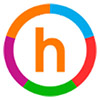
Happify
Need a happy fix? With its psychologist-approved mood-training program, the Happify app is your fast-track to a good mood. Try various engaging games, activity suggestions, gratitude prompts and more to train your brain as if it were a muscle, to overcome negative thoughts. The best part? Its free!
Mental Health
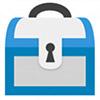
MoodTools
MoodTools aims to support people with clinical depression by aiding the path to recovery. Discover helpful videos that can improve your mood and behavior, log and analyze your thoughts using Cognitive Behavioral Therapy (CBT) principles, develop a suicide safety plan and more with this free app.
Mental Health

nOCD
nOCD was designed with the help of OCD specialists and patients to incorporate two treatments: mindfulness and Exposure Response Prevention Treatment. You can receive immediate, clinically-supported guidance when an OCD episode strikes, take weekly tests to assess the severity of your OCD, and have motivational support along the way. One user calls nOCD “a free therapist in your pocket!”
Mental Health
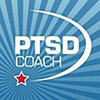
PTSD Coach
Created by the VA’s National Center for Post-Traumatic Stress Disorder (PTSD), PTSD Coach offers everything from a self-assessment for PTSD, to opportunities to find support, positive self-talk, and anger management. What’s great about this app is that you can customize tools based on your own individual needs and preferences, and integrate your own contacts, photos, and music.
Mental Health

Breathe 2 Relax
Sometimes you just need to breathe and remind yourself you are okay. Breathe2Relax is made for just that. Created by the National Center for Telehealth and Technology, this app is a portable stress management tool that teaches users a skill called diaphragmatic breathing. Breathe2Relax works by decreasing the body’s ‘fight-or-flight’ stress response, making it a great option for people suffering from PTSD
Mental Health
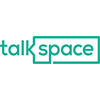
Talk Space
Talkspace is a top-rated therapy app that helps users confidently and comfortably connect with a licensed therapist of their choice. With access to thousands of therapists, you can easily find the best one for you. The app also allows for messaging, phone calls, and video chat, and utilizes the best technology to make sure your conversations remain protected.
Mental Health
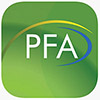
PFA Mobile
PFA Mobile is an app provides additional support when a responder is in the field by providing tips on different survivor groups (infant/toddler, preschool, school-age, adolescent, adult) and keeping track of survivor concerns and referral needs. Resource links are included to facilitate referrals. PFA Mobile™ is designed to supplement other resources that trained individuals utilize before, during, and after a disaster response.
Support Groups
Toolkits
The Indiana Department of Health’s Division of Fatality Review and Prevention in collaboration with the Suicide Learning Collaborative, a multi-disciplinary working group addressing suicide in Indiana, developed a Suicide Prevention Resources Toolkit. Toolkit sections include healthcare, first responders, government, stakeholder groups, justice, employers, faith-based, media, coroners, family, education and populations of special consideration. View the toolkit here.
Useful Links
Suicide Data
Suicide in Indiana 2017 – 2021
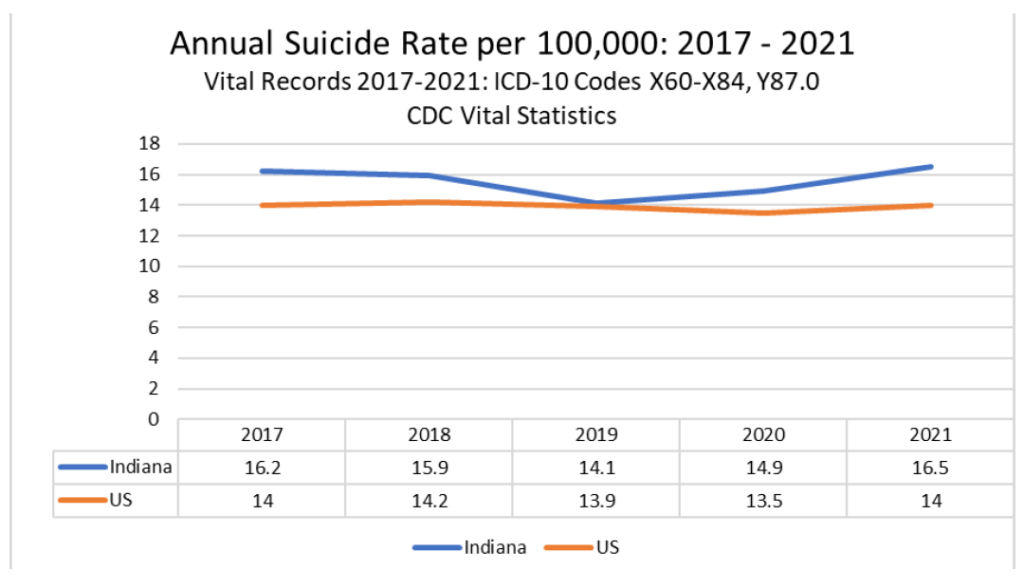

Data Sources:
Middle school data: Indiana Youth Survey, 2022, Indiana University, https://inys.indiana.edu/docs/survey/indianaYouthSurvey_2022.pdf
High school data: Youth Risk Behavior Survey Data (YRBS) 2021, Indiana Department of Health, https://www.in.gov/health/mch/files/2021-YRBS-Presentation.pdf
Adult data: National Survey on Drug Use & Health (NSDUH), 2019-2020, Substance Abuse & Mental Health Services Administration (SAMHSA), https://pdas.samhsa.gov/saes/state
From 2016 to 2020, 5,178 people in Indiana died by suicide, with a suicide rate of 15.46 deaths per 100,000 people (IDOH, Vital Records). According to the CDC, Indiana had a higher suicide rate higher than 22 other states in 2020 (CDC, Suicide Rates by State 2022).
Suicide death rates differ by race and ethnicity, sex, and age.



Firearms are the most common means used in deaths by suicide in Indiana. From 2016 to 2020, 2,958, or 57%, of suicide deaths in Indiana involved firearms, with a suicide rate of 8.84 deaths per 100,000 people (Indiana Department of Health, Stats Explorer, 2022).
